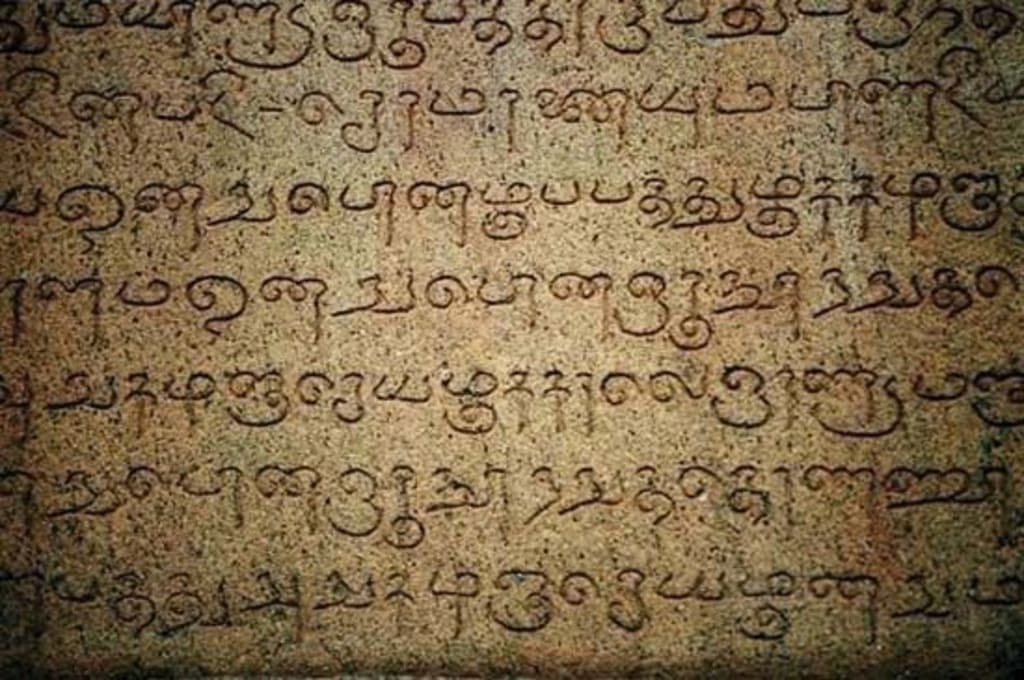
Language is an essential part of human civilization, with various languages spoken worldwide. Some of these languages have been around for centuries, while others are relatively new. Among these languages is Tamil, which is believed to be one of the oldest surviving classical languages in the world. Tamil has a rich literary tradition and a unique cultural heritage that dates back thousands of years. In this article, we will explore the evidence that supports Tamil's claim as the oldest and first language in the world.
Origins of Tamil
The Tamil language belongs to the Dravidian family of languages, which is believed to have originated in South India. The exact origin of the Tamil language is a matter of debate among scholars, with some estimating its origins to be as early as 5,000 BCE. However, most scholars place the origins of Tamil at around 2,500 years old. Regardless of its exact age, Tamil remains one of the oldest and most significant languages in the world.
The Oldest Living Language
Tamil is the oldest language still in use today. By order of appearance, Tamil would be considered the world's oldest living language, with its first grammar book having made its first appearance in 3,000 BC. Tamil is also one of the 22 official languages of India, spoken by over 80 million people worldwide. Additionally, the Indian government recognized Tamil as a classical language in 2004, acknowledging its rich literary tradition and historical significance.
Tamil Literature
Tamil literature is one of the oldest and richest literary traditions in the world. Tamil literature dates back to the Sangam period, which spanned from 300 BCE to 300 CE. The Sangam literature is considered the golden age of Tamil literature, with many of the greatest works of Tamil literature being written during this period. These works include the Tamil epics Silappatikaram and Manimekalai, which are considered among the greatest works of Tamil literature.
Silappatikaram is a five-part epic poem written during the Sangam period, which tells the story of Kannagi, a virtuous woman who avenges the wrongful execution of her husband. The poem is a masterpiece of Tamil literature, and its themes of justice and righteousness have resonated with readers for centuries. Here is a famous verse from Silappatikaram:
"இந்திர வினை எல்லாம் செய்ததும் தம்மைக் காக்கும் சார்
வெந்து மகளிர் வழிவகுக் கருதினேன் மாயாதீனமே."
This verse translates to "Even if Indra himself were to commit a sin, the chaste women of the world would protect themselves and not let themselves be led astray."
The influence of Tamil language and literature extends beyond India's borders, with Tamil communities around the world. Tamil literature has also inspired writers and scholars from other parts of the world. For example, the famous French novelist Marcel Proust was an admirer of Tamil literature and was particularly fond of the Tamil epic Silappatikaram. The timeless legacy of Tamil language and literature continues to inspire and enrich our world today, serving as a testament to the enduring power of human expression and creativity.
Tamil language and literature have played a crucial role in shaping the cultural identity of Tamil Nadu, a state in southern India. From the ancient Sangam literature to the modern works of contemporary writers, Tamil literature has always been a mirror of the state's social, political, and economic life. The literature reflects the changes in society and culture over time, as well as the struggles and aspirations of the Tamil people. The Tamil language is not just a means of communication, but an integral part of Tamil culture and identity, a symbol of the rich and diverse heritage of the Tamil people.
Manimekalai is another epic poem written during the Sangam period. It tells the story of a young woman named Manimekalai, who follows the path of Buddhism and renounces worldly desires. The poem is a masterpiece of Tamil literature, and its themes of spirituality and morality have resonated with readers for centuries.
Conclusion
In conclusion, Tamil language and literature have a rich and unique cultural heritage that dates back thousands of years. While the exact age of Tamil is a matter of debate among scholars, it remains one of the oldest and most significant languages in the world
About the Creator
Chitra
Hello everyone, I'm Chitra, and I'm here to share with you my articles, which are all based on true incidents. I am a storyteller at heart, and I love to share stories that are both captivating and informative.






Comments
There are no comments for this story
Be the first to respond and start the conversation.